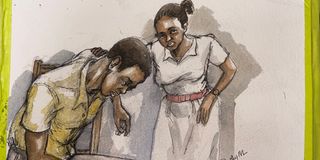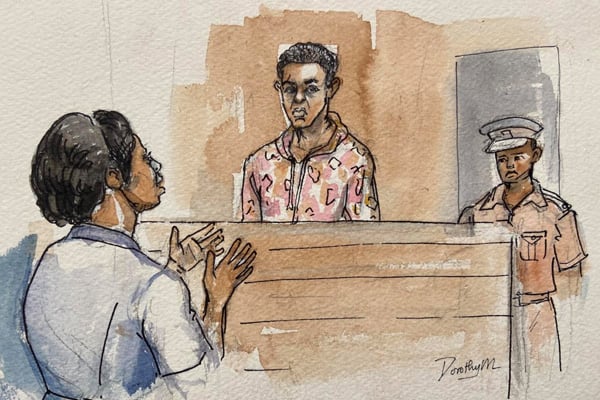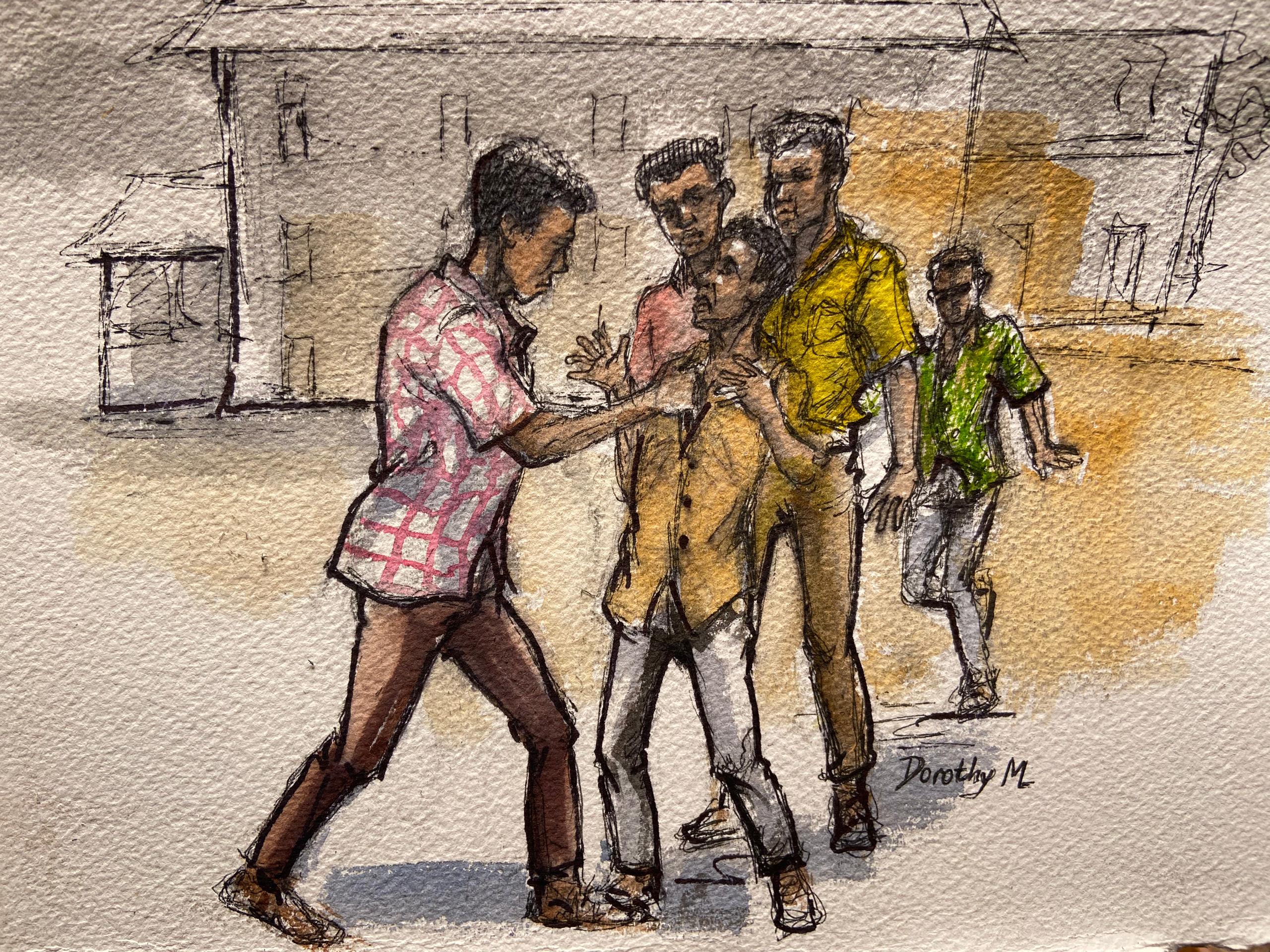
On a contentious case of poisoning it was alleged by the state that a one Richard on the 15th day of May 2021, with malice aforethought, unlawfully caused the death of his half brother Isaac when he, Richard, gave his half brother a drink laced with a deadly poison on 14th March 2021. The deceased, a university student, was admitted in one of the renowned hospitals in the city on 8th May 2021 but died one week later. The diagnosis while in hospital was acute pancreatitis but the patient also tested positive for the Corona Virus.
In July 2021 the body of Isaac was exhumed for a postmortem examination but the results of the postmortem examination were inconclusive. Samples were removed from the body for toxicology and the results of the qualitative analysis indicated that the existence of Carbofuran, a highly toxic substance in the stomach, liver and kidneys of the deceased. The pathologists who exhumed the body recommended quantitative tests to establish the cause of death.
Richard was arrested one year after the death of his brother and taken to court where he was charged with the offence of murder. He denied the charge and a plea of guilty was entered by the court.
Burden of proof
The presumption of innocence is a cardinal principle of criminal law; a person is presumed to be innocent until proven guilty or that person admits his or her guilt. In criminal law the burden of proving the guilt of an accused person rests solely on the prosecution and does not shift throughout the trial. The guilt of an accused person must be proved beyond reasonable doubt. To prove a matter beyond reasonable doubt means that there is no other reasonable hypothesis other than the fact that the accused person committed the offence.
The law provides that when a person who alleges a fact bears the burden of proof; that is, when a person alleges a fact then the burden of proving that fact lies on that person. The burden of proof as to any particular fact lies on that person who wishes the court to believe its existence, unless it is provided by law that the proof of that fact lies on a particular person. The prosecution, therefore, had to prove beyond reasonable doubt that Richard gave his brother poison and that his half brother died as a result of that poison and nothing else.
The courts of law have always held that regarding evidence in criminal matters inconsistencies and contradictions that arise, unless satisfactorily explained, should benefit or be resolved in favour of the accused person. It was the evidence of the doctors who attended to the deceased that he died of acute pancreatitis and that he tested positive for the Corona virus. A postmortem examination carried out at the end of July 2021 did not reveal any anatomical cause of death. Samples removed from the body were said to contain a very toxic substance known as Carbofuran. This substance, according to the prosecution evidence causes death in a matter of hours.
In respect to the cause of death there were a number of major contradictions; the deceased could not have died of pancreatitis and Carbofuran poisoning at the same time. This major contradiction was not satisfactorily explained in the court proceedings. The deceased, while in hospital, did not manifest features of Carbofuran poisoning, features which were clearly pointed out in by the prosecution witnesses. The patient died two months after taking the alleged poison yet death from that poison occurs in a matter of hours. Even if the patient died of the poison that causes death within hours, then there is no evidence that the accused administered the poison. There is no doubt that the matter of the cause of death goes to the root of this criminal case.
Samples be submitted
The doctors who exhumed the body of the deceased and carried out a postmortem examination on the body were hesitant to conclude that the death of the patient was due to Carbofuran poisoning but recommended that a quantitative test be performed on the samples to determine the actual chemical concentration level in the submitted poisons and whether it was a lethal dose. The authors of the report further recommended that the samples be submitted for further analysis to a different laboratory and another opinion obtained. The investigating officer in this case told court that the quantitative test was not carried out and that the samples were never submitted to a different laboratory for another opinion. It is therefore apparent that to the doctors that the cause of death was from the poison was not beyond reasonable doubt.
On the contrary the diagnosis of acute pancreatitis was consistent with the clinical features that the patient presented with. He had a history of substantial alcohol intake a week before he was admitted. The association of alcohol and acute pancreatitis is significant and well documented. A person suffering from acute pancreatitis will complain of burning abdominal pain in the upper part of the abdomen which is not unlike the pain of peptic ulcers. This is how the patient presented and evidence on record showed that he was treated for peptic ulcers. The medical tests for acute pancreatitis were positive. And acute pancreatitis, in about fifty percent of cases, leads to death. The question that is difficult to fathom is why court ignored pancreatitis as a cause of death but instead ruled that the cause of death was poisoning even when the evidence was to the contrary.
Primary cause of death
The court also misdirected itself on the issue of the Corona Virus test. The patient tested positive for the Corona virus. A test carried out after the patient died and done in the Virus institute turned out as negative. These two tests contradicted themselves and were not satisfactorily explained. Corona virus is often an illness of short duration. Many people who test positive for the virus turn negative within a very short time.
Two different samples were tested for in this case and the methods used for these tests were different. Much as the patient tested positive for Corona virus, this was not the stated primary cause of death from the hospital. It is apparent that court used the negative Corona virus test to doubt or ignore pancreatitis as the cause of death.
Based on some of these facts and opinions, lawyers for the accused person made a submission of a no case to answer.
To be continued








